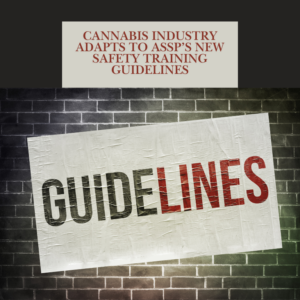Top 10 Effective Tips for Staying Grounded in a Busy Season

Busy seasons can be a whirlwind for workers, bringing increased workloads, tight deadlines, and more pressure to perform. During these high-stress periods, it’s easy to feel overwhelmed, lose focus, and burn out. However, staying grounded is essential for maintaining productivity, mental well-being, and a healthy work-life balance. Grounded employees tend to handle stress better, make clearer decisions, and keep their energy and morale high. Here are ten effective tips for staying grounded, centered, and calm through any busy season.
1. Prioritize and Organize Your Tasks
The first step to staying grounded is to bring order to the chaos by organizing and prioritizing tasks. Start by breaking down larger projects into smaller, manageable steps. Prioritize these steps based on deadlines, complexity, and importance, and tackle them in a structured manner. Utilizing tools like to-do lists, digital planners, or project management apps can be helpful for tracking your progress.
Consider the “Eisenhower Matrix,” which categorizes tasks based on urgency and importance, helping you prioritize tasks that are truly essential and can’t wait.
2. Set Realistic Boundaries
Establishing boundaries is crucial during busy periods to prevent work from overtaking your entire life. Be clear about your working hours and avoid taking on more than you can realistically handle. Politely say “no” to additional tasks if they exceed your capacity, and communicate your limits to colleagues or managers. This allows you to give quality attention to your current tasks without risking burnout.
If you’re working remotely, consider creating a designated workspace and avoid checking emails or messages outside your set work hours.
3. Practice Mindfulness and Meditation
Mindfulness and meditation are powerful tools for reducing stress and staying centered, even in the busiest of times. Taking a few minutes each day to practice deep breathing exercises or guided meditation can help clear your mind, reduce anxiety, and increase your focus. Research has shown that mindfulness improves concentration, emotional regulation, and resilience to stress.
Use meditation apps like Headspace, Calm, or Insight Timer for guided sessions. Even five minutes a day can make a noticeable difference in your stress levels and mental clarity.
4. Take Short Breaks Regularly
When your workload is heavy, it’s tempting to work non-stop to “just get it done.” However, working without breaks reduces productivity over time. Taking short, regular breaks can actually boost focus, creativity, and efficiency. Even a five-minute walk around the office or some stretching exercises can give your brain a much-needed pause and help you return to your tasks with a fresh perspective.
Use the Pomodoro Technique, where you work for 25 minutes and then take a 5-minute break. After four cycles, take a longer 15-30 minute break to recharge.
5. Stay Connected with Colleagues
Feeling grounded is easier when you have a support system. Connecting with colleagues during stressful periods provides social support, strengthens teamwork, and builds morale. Whether it’s a quick chat about a project or taking a lunch break together, having positive interactions with coworkers can make challenging times more manageable.
If you’re working remotely, set up virtual coffee breaks or use communication tools like Slack to maintain a sense of connection. Don’t hesitate to reach out for support or share advice on managing workloads.
6. Practice Gratitude Daily
Focusing on gratitude can help shift your mindset and keep you grounded during hectic times. When stress is high, gratitude can act as a mental anchor, reminding you of the positives in your life and work. Reflecting on what you’re thankful for can reduce anxiety, improve emotional resilience, and promote a more positive outlook.
Start a gratitude journal and write down three things you’re grateful for each day. Reflect on these entries during moments of stress to remind yourself of the positive aspects of your work and life.
7. Incorporate Physical Activity
Physical activity is not only beneficial for your physical health but also for your mental well-being. Exercise releases endorphins, which are natural mood enhancers that help reduce stress. Incorporating movement into your day—even if it’s just a short walk, a quick workout, or a few stretches at your desk—can boost energy levels and improve your ability to stay grounded.
Schedule a 10-15 minute walk after lunch or stretch every few hours to relieve muscle tension and clear your mind. If you have more time, consider longer activities such as yoga or a gym workout.
8. Focus on What You Can Control
Busy seasons often come with unexpected challenges, changes, and demands, which can be frustrating. To stay grounded, focus on what you can control, such as your reaction to stress, how you organize your tasks, and how you take care of yourself. Letting go of things outside your control—like sudden deadline changes or project modifications—can help you maintain a calm and positive attitude.
Create a list of things you can control and those you cannot. When stress arises, shift your focus to actions within your control, such as time management or seeking support from colleagues.
9. Stay Hydrated and Eat Nourishing Foods
When work gets intense, it’s easy to overlook hydration and nutrition. But staying physically nourished is essential to maintain energy and focus. Dehydration and unhealthy eating habits can lead to fatigue, irritability, and reduced concentration. Opt for balanced meals with protein, whole grains, and fresh vegetables to fuel your body and brain for long days.
Keep a water bottle at your desk and set reminders to drink water throughout the day. Prepare healthy snacks like fruits, nuts, or yogurt to avoid reaching for sugary or processed foods during busy periods.
10. End Each Day with a Reflection
Taking time at the end of each day to reflect can help you leave work-related stress behind and unwind. Reflect on what you accomplished, acknowledge any challenges you faced, and give yourself credit for your hard work. This practice not only provides closure for the day but also helps you gain perspective, making it easier to tackle the next day with a clear mind.
Spend a few minutes journaling about your day or list three things you’re proud of accomplishing. This reflection can be a powerful tool to reinforce positivity, focus, and resilience.
Embracing a Grounded Mindset Beyond the Busy Season
Staying grounded during busy seasons is challenging but achievable. By incorporating small, consistent practices into your routine, you can better manage stress, maintain focus, and preserve your well-being. Many of these strategies, like mindfulness, regular breaks, and gratitude, can become valuable habits that benefit you in both busy and quieter times.
Benefits of Staying Grounded for Workers and Employers
For workers, staying grounded in a hectic environment leads to better focus, higher productivity, and an improved sense of job satisfaction. When employees feel grounded, they are less likely to experience burnout and more likely to maintain a healthy work-life balance. Additionally, these practices contribute to better physical health, as stress levels remain manageable and energy levels remain consistent.
For employers, having grounded employees can result in a more positive and productive workplace culture. Workers who can effectively manage their stress are more collaborative, adaptable, and resilient in the face of challenges. Encouraging employees to adopt these grounding practices can lead to higher morale, lower absenteeism, and an overall stronger team.
Making Groundedness a Habit
It’s important to recognize that grounding is a continuous practice, not a quick fix. These strategies work best when integrated into your daily routine rather than used only in times of stress. Taking small steps to stay grounded can create lasting positive effects on your career, relationships, and personal life.
As the demands of work fluctuate, maintaining grounding practices will help you navigate challenges with resilience and calm. By prioritizing self-care, mindfulness, and organization, you can stay centered and thrive—even in the busiest seasons.











